« Return to all search results
Title Search Results
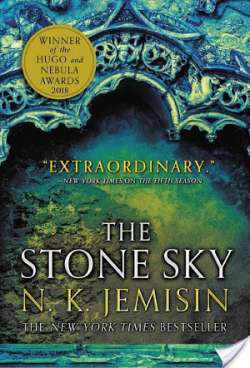
Humanity will finally be saved or destroyed in the shattering conclusion to the post-apocalyptic and highly acclaimed NYT bestselling trilogy that won the Hugo Award three years in a row. The Moon will soon return. Whether this heralds the destruction of humankind or something worse will depend on two women. Essun has inherited the power of Alabaster Tenring. With it, she hopes to find her daughter Nassun and forge a world in which every orogene child can grow up safe. For Nassun, her mother's mastery of the Obelisk Gate comes too late. She has seen the evil of the world, and accepted what her mother will not admit: that sometimes what is corrupt cannot be cleansed, only destroyed. This is the way the world ends... for the last time. "Extraordinary." - New York Times on The Fifth Season The Broken EarthThe Fifth SeasonThe Obelisk GateThe Stone Sky For more from N. K. Jemisin, check out: The Inheritance TrilogyThe Hundred Thousand KingdomsThe Broken KingdomsThe Kingdom of Gods The Inheritance Trilogy (omnibus edition)Shades in Shadow: An Inheritance Triptych (e-only short fiction)The Awakened Kingdom (e-only novella) Dreamblood DuologyThe Killing MoonThe Shadowed Sun The Dreamblood Duology (omnibus)
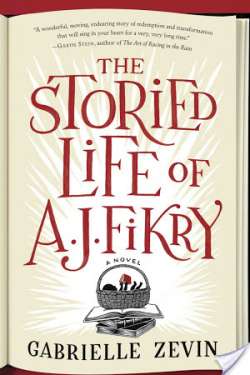
On the faded Island Books sign hanging over the porch of the Victorian cottage is the motto "No Man Is an Island; Every Book Is a World." A. J. Fikry, the irascible owner, is about to discover just what that truly means. A. J. Fikry's life is not at all what he expected it to be. His wife has died, his bookstore is experiencing the worst sales in its history, and now his prized possession, a rare collection of Poe poems, has been stolen. Slowly but surely, he is isolating himself from all the people of Alice Island—from Lambiase, the well-intentioned police officer who's always felt kindly toward Fikry; from Ismay, his sister-in-law who is hell-bent on saving him from his dreary self; from Amelia, the lovely and idealistic (if eccentric) Knightley Press sales rep who keeps on taking the ferry over to Alice Island, refusing to be deterred by A.J.'s bad attitude. Even the books in his store have stopped holding pleasure for him. These days, A.J. can only see them as a sign of a world that is changing too rapidly. And then a mysterious package appears at the bookstore. It's a small package, but large in weight. It's that unexpected arrival that gives A. J. Fikry the opportunity to make his life over, the ability to see everything anew. It doesn't take long for the locals to notice the change overcoming A.J.; or for that determined sales rep, Amelia, to see her curmudgeonly client in a new light; or for the wisdom of all those books to become again the lifeblood of A.J.'s world; or for everything to twist again into a version of his life that he didn't see coming.
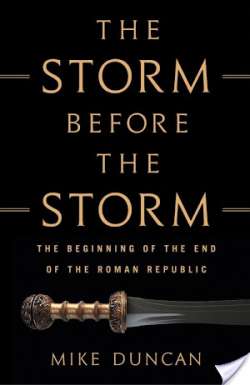
NEW YORK TIMES BESTSELLER The creator of the award-winning podcast series The History of Rome and Revolutions brings to life the bloody battles, political machinations, and human drama that set the stage for the fall of the Roman Republic. The Roman Republic was one of the most remarkable achievements in the history of civilization. Beginning as a small city-state in central Italy, Rome gradually expanded into a wider world filled with petty tyrants, barbarian chieftains, and despotic kings. Through the centuries, Rome's model of cooperative and participatory government remained remarkably durable and unmatched in the history of the ancient world. In 146 BC, Rome finally emerged as the strongest power in the Mediterranean. But the very success of the Republic proved to be its undoing. The republican system was unable to cope with the vast empire Rome now ruled: rising economic inequality disrupted traditional ways of life, endemic social and ethnic prejudice led to clashes over citizenship and voting rights, and rampant corruption and ruthless ambition sparked violent political clashes that cracked the once indestructible foundations of the Republic. Chronicling the years 146-78 BC, The Storm Before the Storm dives headlong into the first generation to face this treacherous new political environment. Abandoning the ancient principles of their forbearers, men like Marius, Sulla, and the Gracchi brothers set dangerous new precedents that would start the Republic on the road to destruction and provide a stark warning about what can happen to a civilization that has lost its way.
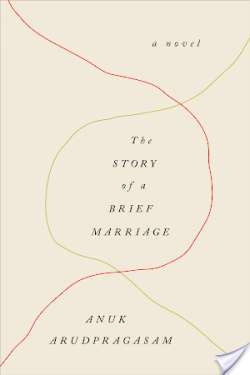
Shortlisted for the Dylan Thomas Prize “Brave...Brilliant...This is a book that makes one kneel before the elegance of the human spirit and the yearning that is at the essence of every life.” —The New York Times Book Review "One of the best books I have read in years." —Colm Toibin Two and a half decades into a devastating civil war, Sri Lanka’s Tamil minority is pushed inexorably towards the coast by the advancing army. Amongst the evacuees is Dinesh, whose world has contracted to a makeshift camp where time is measured by the shells that fall around him like clockwork. Alienated from family, home, language, and body, he exists in a state of mute acceptance, numb to the violence around him, till he is approached one morning by an old man who makes an unexpected proposal: that Dinesh marry his daughter, Ganga. Marriage, in this world, is an attempt at safety, like the beached fishing boat under which Dinesh huddles during the bombings. As a couple, they would be less likely to be conscripted to fight for the rebels, and less likely to be abused in the case of an army victory. Thrust into this situation of strange intimacy and dependence, Dinesh and Ganga try to come to terms with everything that has happened, hesitantly attempting to awaken to themselves and to one another before the war closes over them once more. Anuk Arudpragasam’s The Story of a Brief Marriage is a feat of extraordinary sensitivity and imagination, a meditation on the fundamental elements of human existence—eating, sleeping, washing, touching, speaking—that give us direction and purpose, even as the world around us collapses. Set over the course of a single day and night, this unflinching debut confronts marriage and war, life and death, bestowing on its subjects the highest dignity, however briefly.
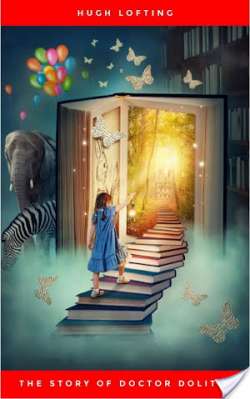
"The Story of Doctor Dolittle" introduces us to this respected English physician and naturalist, whose love of animals and growing household menagerie leads to him learning the secret of speaking to animals from his parrot Polynesia, and then taking up veterinary practice. His fame in the animal kingdom spreads throughout the world, and he receives a desperate plea to go to Africa to cure a terrible monkey epidemic. So begins the first voyage of the Doctor and his animal companions.
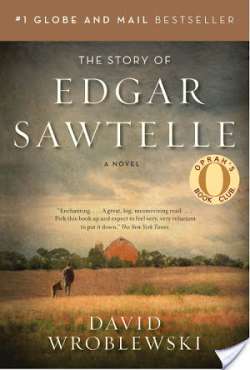
A riveting family saga, The Story of Edgar Sawtelle explores the deep and ancient alliance between humans and dogs, and the power of fate through one boy’s epic journey into the wild. Born mute, speaking only in sign, Edgar Sawtelle leads an idyllic life with his parents on their farm in remote northern Wisconsin. For generations, the Sawtelles have raised and trained a fictional breed of dog whose thoughtful companionship is epitomized by Almondine, Edgar's lifelong companion. But with the unexpected return of Claude, Edgar's uncle, turmoil consumes the Sawtelle's once-peaceful home. When Edgar's father dies suddenly, Claude insinuates himself into the life of the farm – and into Edgar's mother’s affections. Grief-stricken and bewildered, Edgar tries to prove Claude played a role in his father's death, but his plan backfires, spectacularly. Edgar flees into the vast wilderness lying beyond the farm. He comes of age in the wild, fighting for his survival and that of the three yearling dogs who follow him. But his need to face his father’s murderer, and his devotion to the Sawtelle dogs, turn Edgar ever homeward. Wroblewski is a master storyteller, and his breathtaking scenes – the elemental north woods, the sweep of seasons, an iconic American barn, a ghost made of falling rain – create a family saga that is at once a brilliantly inventive retelling of Hamlet, an exploration of the limits of language, and a compulsively readable modern classic. From the Hardcover edition.
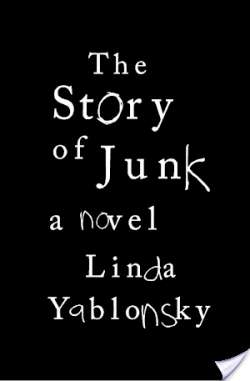
Witty, terrifying, and utterly cool, Yablonsky’s roman à clef is a searing, hyperreal account of the heroin underground in 1980s Manhattan Told with dark humor and unremitting honesty, Linda Yablonsky’s riveting first novel explores the New York art and postpunk music world of the early 1980s from deep within. Set in motion by the appearance of a federal agent, the tale follows two women on a dangerous and seductive journey through a bohemia where hard drugs, extreme behavior, intense friendships, and the emergence of AIDS profoundly alter their lives.
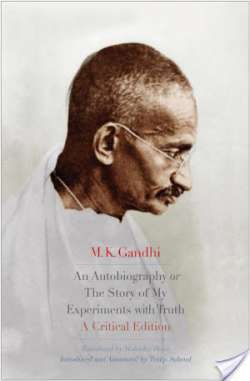
The first critical, annotated edition of M. K. Gandhi's most famous written work, published seventy years after his death In the mid-1920s, prompted by a "small, still voice" that encouraged him to lay bare what was known only to him and his God, M. K. Gandhi began writing and publishing his autobiography. Drafted during a period of intensive fasting and "in-dwelling" at his ashram in Ahmedebad, his story of the soul portrayed the deeper, more inward experiences that made him externally an innovator in the struggles against violence, racism, and colonialism. The book, written in Gujarati and translated into English by Mahadev Desai, would become an international classic, hailed as one of the "100 Best Spiritual Books of the 20th Century." This first critical edition of this seminal work by leading Gandhi scholar Tridip Suhrud offers an unprecedented window into the original Gujarati text. Including both alternative English translations and illuminating notes, as well as a deeply researched introduction, it will bring renewed critical attention to one of the world's most widely read books.
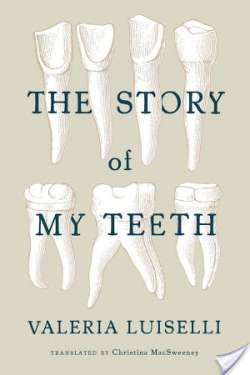
“Luiselli follows in the imaginative tradition of writers like Borges and Márquez, but her style and concerns are unmistakably her own. This deeply playful novel is about the passion and obsession of collecting, the nature of storytelling, the value of objects, and the complicated bonds of family. . . Luiselli has become a writer to watch, in part because it’s truly hard to know (but exciting to wonder about) where she will go next.”—The New York Times I was born in Pachuca, the Beautiful Windy City, with four premature teeth and my body completely covered in a very fine coat of fuzz. But I'm grateful for that inauspicious start because ugliness, as my other uncle, Eurípides López Sánchez, was given to saying, is character forming. Highway is a late-in-life world traveler, yarn spinner, collector, and legendary auctioneer. His most precious possessions are the teeth of the "notorious infamous" like Plato, Petrarch, and Virginia Woolf. Written in collaboration with the workers at a Jumex juice factory, Teeth is an elegant, witty, exhilarating romp through the industrial suburbs of Mexico City and Luiselli's own literary influences. Valeria Luiselli was born in Mexico City in 1983 and grew up in South Africa. Her work has been translated into many languages and has appeared in publications including the New York Times, Granta, and McSweeney's. Her novel, The Story of My Teeth, is the winner of the LA Times Book Prize in Fiction.
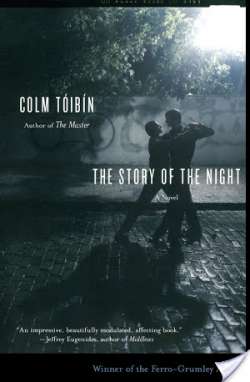
From the award-winning author of Brooklyn and The Master, a powerful, brave, and moving novel set in Argentina. In Argentina, in the time of the Generals, the streets are empty at night, and people have trained themselves not to see. Richard Garay lives with his mother, hiding his sexuality from her and from society. Stifled by his job, Richard is willing to take chances, both sexually and professionally. But Argentina is changing, and as his country edges toward peace, Richard tentatively begins a love affair. The result is a powerful, brave, and poignant novel of sex, death, and the diffculties of connecting one's inner life with the outside world.
